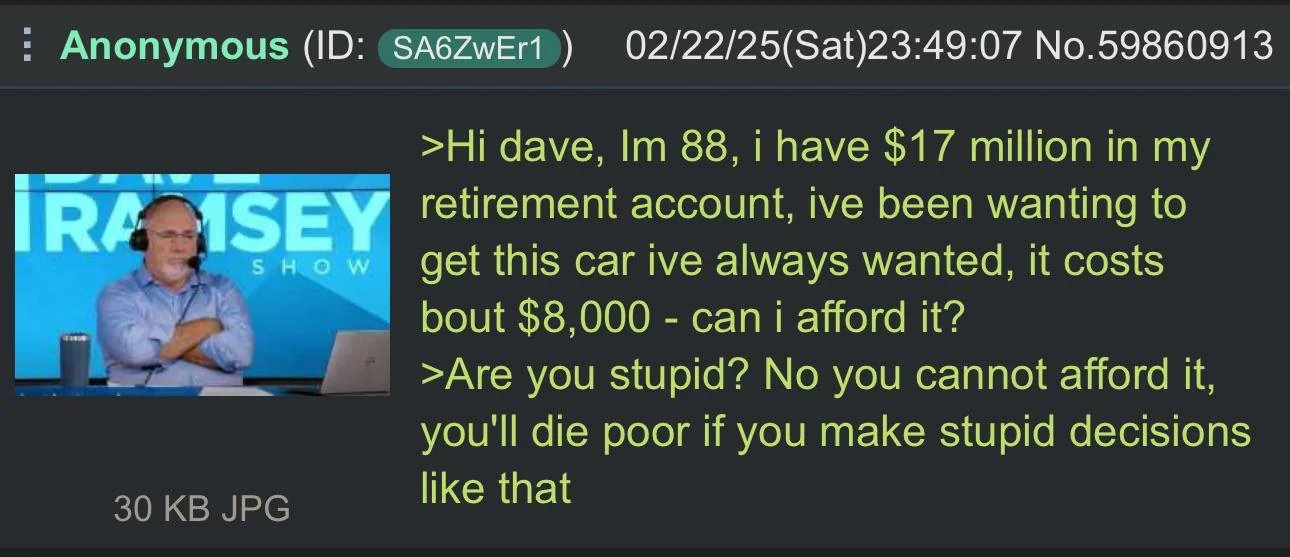this post was submitted on 25 Mar 2025
549 points (98.2% liked)
Greentext
6214 readers
206 users here now
This is a place to share greentexts and witness the confounding life of Anon. If you're new to the Greentext community, think of it as a sort of zoo with Anon as the main attraction.
Be warned:
- Anon is often crazy.
- Anon is often depressed.
- Anon frequently shares thoughts that are immature, offensive, or incomprehensible.
If you find yourself getting angry (or god forbid, agreeing) with something Anon has said, you might be doing it wrong.
founded 2 years ago
MODERATORS
you are viewing a single comment's thread
view the rest of the comments
view the rest of the comments

With inheritance taxes in the west not even then.
I would love to have inheritance tax as something to worry about.
It would mean I have millions to leave my family.
Unless you are dying with millions, inheritance tax is nothing.
Exactly. I forget the limit, but it's something north of $10M before it gets taxed in the US. Not sure about other western countries.
At least in the US inheritance tax really isn't a thing. It's only a couple of states that do it, and for federal taxes the estate has to be very large. In 2025 the exemption is 13.99 million per individual from any estate taxes. I certainly have never had a family member with an estate anywhere near that size
$13,990,000 in 2025, doubled if you have a spouse (or deceased spouse).
You can inherit a fair amount without paying inheritance tax.
at least not without preparation, it's insane that you have to figure out inheritance in advance or your descendants get screwed. If you set things up properly then here you can inherit a primary residence tax free, but if you don't set things up then you're just shafted.
You're really not. You can do zero planning and as long as the total amount is <$14M, there are no taxes due.
One big difference, however, is pretax investments (IRA and 401K in the US). Sell or convert to Roth before you die and it won't be an issue at all. If everything is in regular taxable accounts, the beneficiaries even get a step up in basis, so they will only owe cap gains on growth after your death.
Any third rate tax person could figure that out.